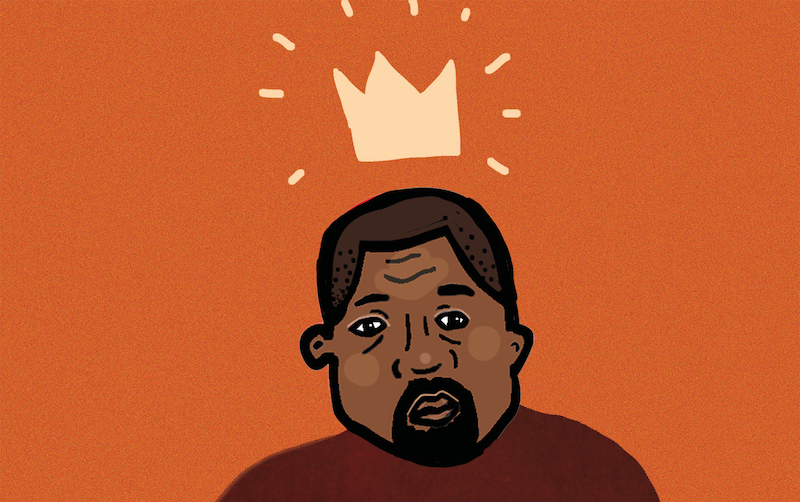“Jesus is King” is set to drop…at some point
When he isn’t stirring up the world with controversial political and cultural remarks, Kanye West is making headlines in the world of fashion. Musically, West hasn’t made news, apart from the cancelling of Yhandi back in September of 2018.
While the musical phenom has been laying low this year (certainly by his standards), that notion will surely change when his upcoming album Jesus is King is released. While many may argue that this will result in Yeezy once again disrupting the hip-hop hierarchy, I would argue that his position in said structure – as King and Supreme Ruler, has never faltered.
West arose in a time period dominated by hip hop artists whose lyrics generally evoked expensive lifestyles and gangster personas, with the unspoken consensus being that these were themes that needed to be discussed in order to be taken seriously in the industry. At the time, West earned his credibility through his creativity as a producer for the record label Roc-A-Fella.
In releasing his debut album, The College Dropout, the self-promoted rapper did two things; he bridged the gap in hip hop that emerged between mainstream and underground empires over the last decade, and created a successful “regular guy” rapping persona that was significantly more relatable to listeners.
Wearing his original pink polo, West modified the prerequisites to having a fruitful career in the genre by rapping on subjects like materialism, religion, and family. By changing the general perception of what a rapper must be, he paved the way for new sets of talent that may have never emerged otherwise.
West induced a plethora of musical concepts consumers are exposed to today. The confident Late Registration formed a celebratory and grandiose feeling while he introduced instrumentation from other genres that hadn’t been heard in rap music before. If West needed any more justification of his dominance, he got it when hard-hitting Graduation outsold 50 Cent’s Curtis in a clash between contemporary and traditional rap. The album started a trend by blending hip hop and electronic music.
The most influential of his works is none other than 808s and Heartbreak, where a heavy-hearted West experienced a personal crisis and let it out in the form of exceptional ballads intertwined with auto-tune and a TR-808 drum machine. The result was a project so unique that critics at the time struggled to label it rap.
Kid Cudi, who helped in the making of 808s, saw all of his major albums that followed a similar archetype make the top-five on the Billboard Top 200. Auto-tune as a technique in rap became more popular after 808s through artists like T-Pain, Future, Travis Scott, the Weeknd, and Young Thug, who have made it a staple on most of their projects.
Drake, who has made a name for himself in his use of emotional breakdown and sorrow in his tracks, has gone on the record and said: “I [have] the utmost respect for Kanye West. I’d even go as far as to say he’s the most influential person as far as a musician that I’d ever had in my life.”
The fact of the matter is, West is the forefather of modern rap and R&B. He doesn’t need to headline mainstream news to be a part of it. Like how children emulate their parents’ values through their influence, Yeezy is constantly reminding the public of his musical supremacy through his effect on other artists’ works.
Graphic by @sundaeghost
